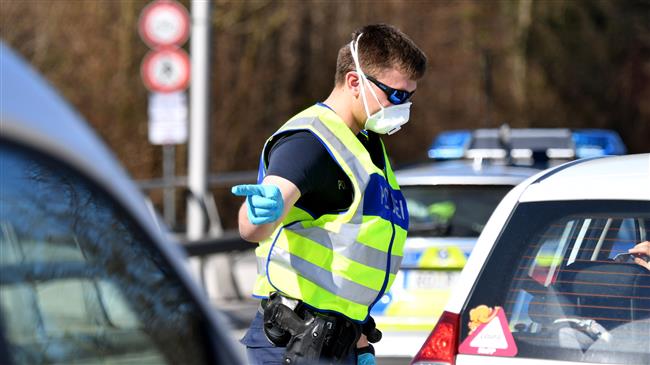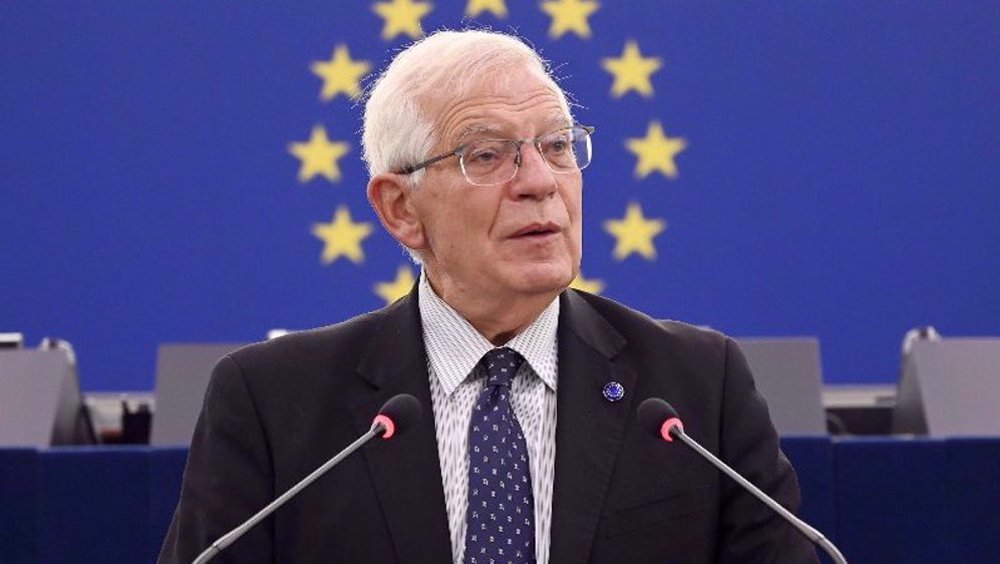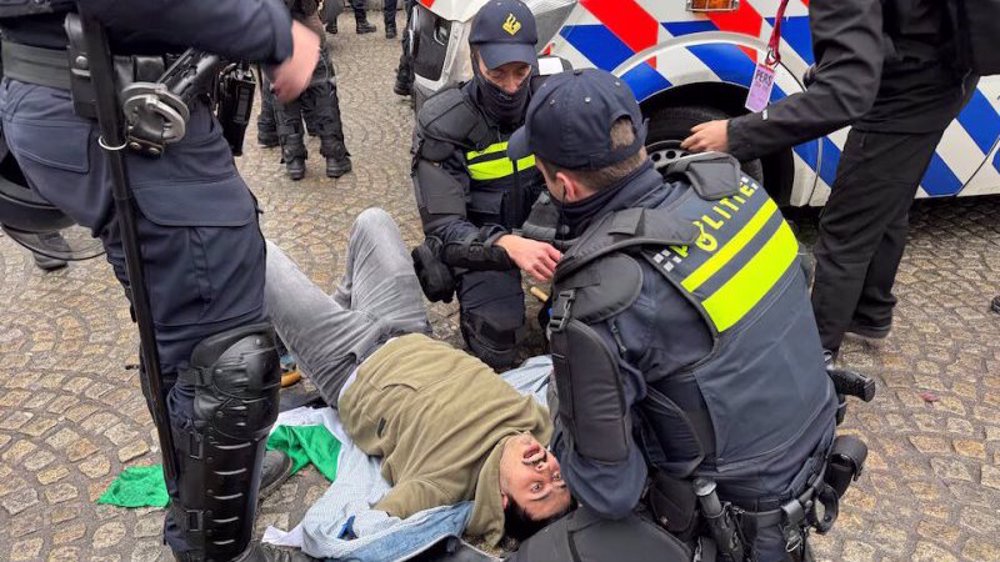EU says border closure ‘not the best way’ to stem new coronavirus
Closure of borders is “not the best way” to contain the spread of the new coronavirus inside the European Union and goes against the EU principle of freedom of movement, says the bloc’s executive arm.
The European Commission said on Monday that such a move was "not necessarily" the best way to stem the deadly virus outbreak and it was the member states' responsibility to safeguard the health of citizens.
The commission stressed in a note to the 27-member trade union that the EU countries must avoid obstructing the food and medicine supply lines amid border restrictions they impose to contain the disease.
"The coronavirus crisis has highlighted the challenge of protecting the health of the population whilst avoiding disruptions to the free movement of persons, and the delivery of goods and essential services across Europe," the note said, adding, “The implementation of... checks of persons and goods should be governed by the principle of solidarity between member states.”
The commission said suspending freedom of movement for people, goods and services — fundamental principles of the EU Single Market — risked panicky purchases and would aggravate the economic impact of the coronavirus.
"In order to avoid shortages and a worsening of the social and economic difficulties that all European countries are already experiencing, maintaining the functioning of the Single Market is key," the commission said.
European countries have fully or partially sealed their borders to non-nationals and implemented extra border checks over the pandemic.
Germany on Sunday became the latest EU country to partially close its borders, halting crossings from France, Austria and Switzerland.
European Commission President Ursula von der Leyen warned that EU countries imposing border checks were threatening supply chains and increasing the risk of shortages.
Von der Leyen also expressed alarm that the EU’s internal market must keep flowing as panicky shoppers had stripped supermarket shelves bare of some products in several member states.
European response to the #coronavirus: Protecting people‘s health and ensuring that goods flow in the internal market pic.twitter.com/9JNBzHjqvc
— Ursula von der Leyen (@vonderleyen) March 15, 2020
“Thousands of bus and truck drivers are stranded at internal borders on parking lots, creating more health risks and disrupting our supply chains,” she said.
“If we do not take action now, shops will start facing difficulties in refilling their stocks of certain products coming from elsewhere in the single market.”
The EU has been ramping up its efforts to coordinate the fight against the virus across all its 27 member states as the World Health Organization (WHO) warned on Friday that Europe is now the “epicenter” for the global coronavirus pandemic, reporting more daily cases than China did at the height of its outbreak.
The coronavirus, a respiratory disease known as COVID-19, emerged in the central Chinese city of Wuhan in Hubei Province late last year and is currently affecting 149 countries and territories across the globe. It has so far infected over 147,000 people and killed more than 5,500 others.
Russia launches task force, builds coronavirus hospital
In a relevant development on Monday, Russia announced new steps to contain the outbreak, including closing its border with Belarus and the creation of a task force to lead the country’s response to the pandemic.
"Proactive preventative measures we already took in February have reduced the spread of the new coronavirus in Russia," Russian Prime Minister Mikhail Mishustin said.
“We should do all we can so that the situation does not develop like in other countries. We are deliberately introducing all the current restrictions in order to avoid tougher measures in the future.”
Moscow has already closed its border with China and limited flights with Iran and South Korea as well as the European Union. Russia has recorded 63 cases of COVID-19 but no deaths, according to official figures.
Moreover, Russian authorities are building a hospital for coronavirus patients, similar to the medical facilities that were constructed in China in a short time period.

Moscow's deputy mayor Anastasia Rakova announced on the city's health department website that the new hospital and its 500 beds will be ready in the “near future.”
Russia’s state TV has been broadcasting images of workers swiftly assembling prefabricated walls to bring the new hospital in operational phase.
An existing Moscow hospital has been turned into a treatment center and quarantine zone exclusively for coronavirus patients as the number of confirmed cases continue to rise.
VIDEO | Press TV's news headlines
VIDEO | US-Israeli genocide: Will Gazans see ceasefire deal achieved?
VIDEO | Grief strikes Parachinar: 44 lives lost in terror attack
VIDEO | Yemen’s armed forces target Israeli airbase amid nationwide pro-Palestinian rallies
Putin vows more test of new hypersonic missile
VIDEO | Jordanians continue rallies to denounce Israeli genocide in Gaza, Lebanon
6 Israeli soldiers commit suicide: Reports
Diplomat discourages recourse to pressure, intimidation, confrontation against Iran












 This makes it easy to access the Press TV website
This makes it easy to access the Press TV website